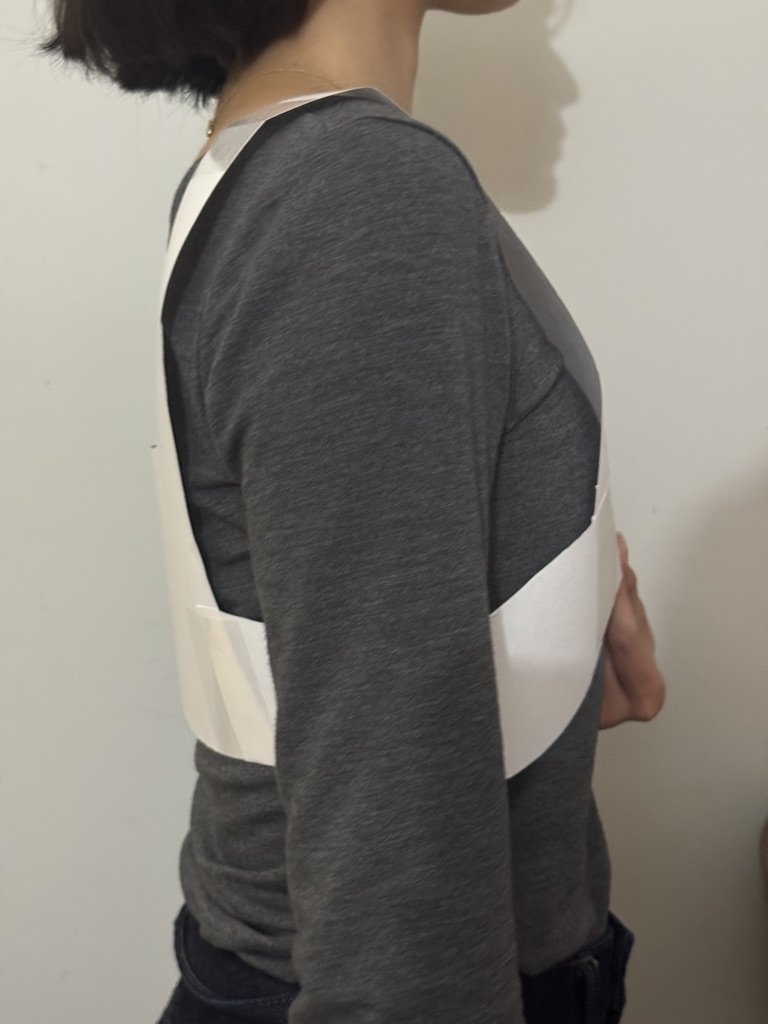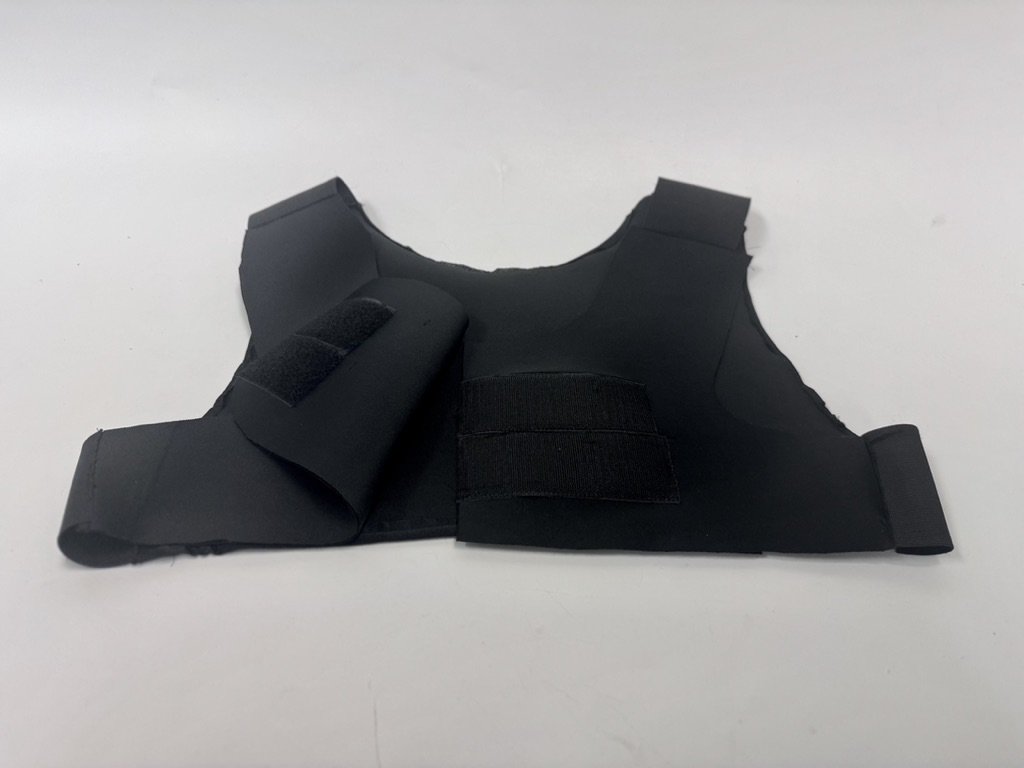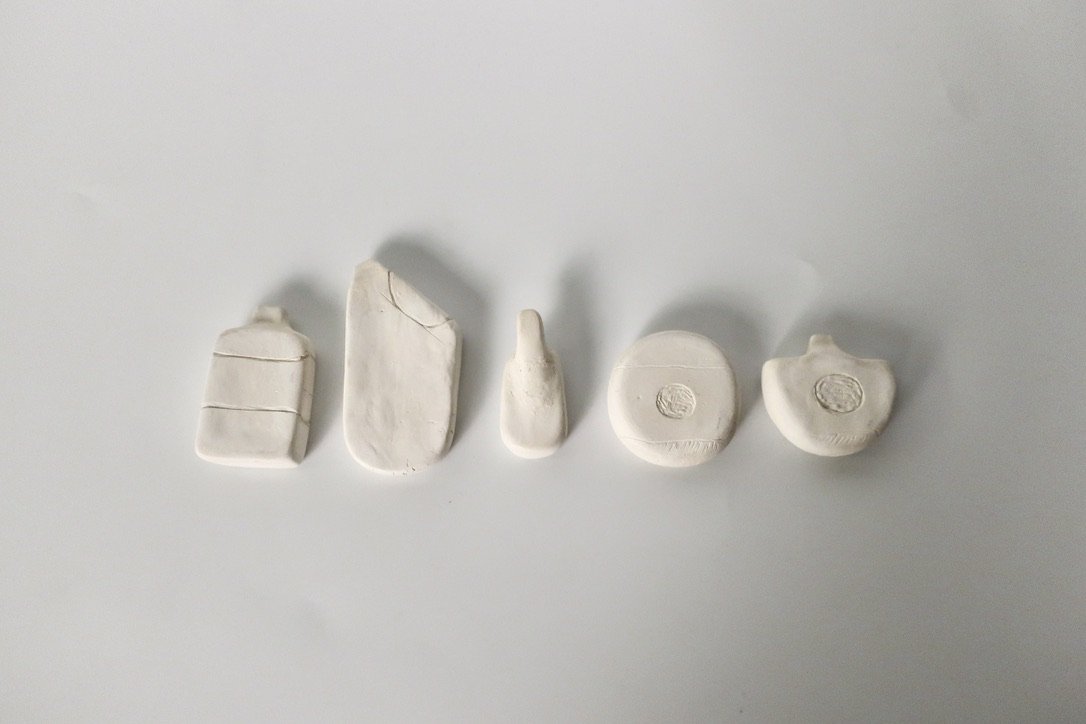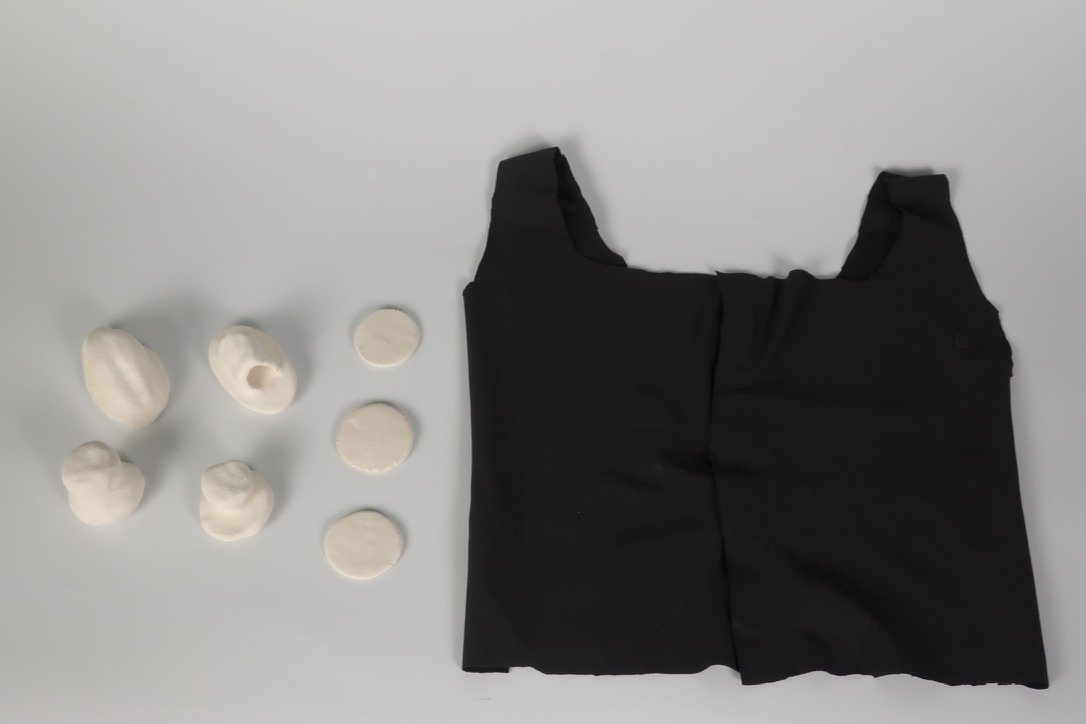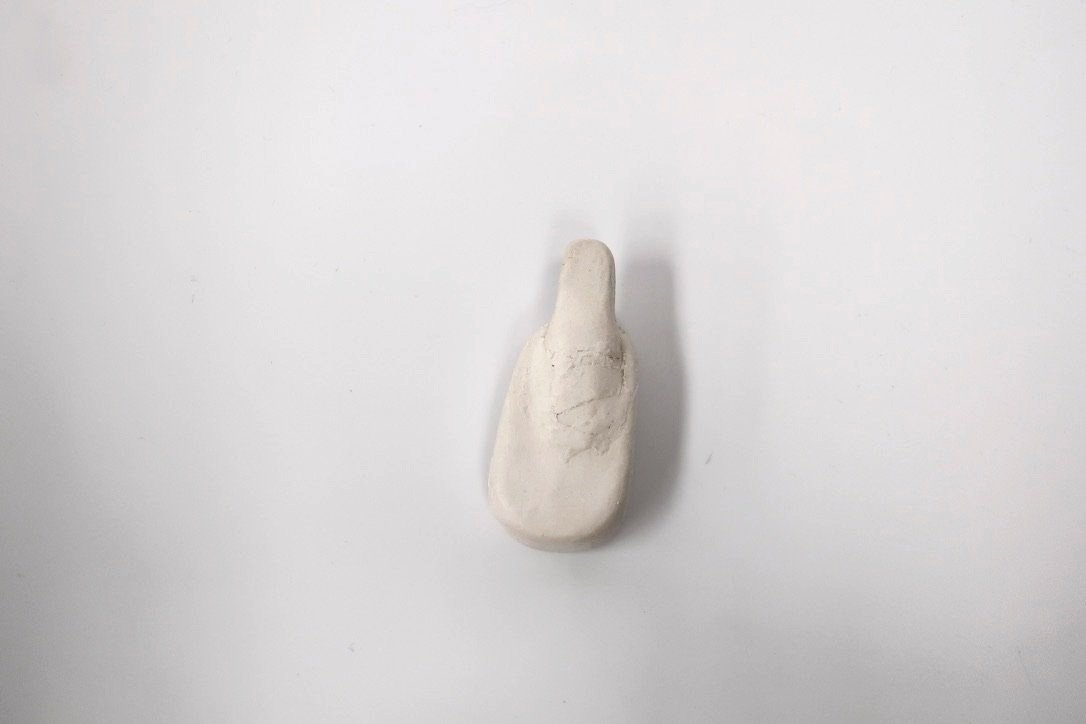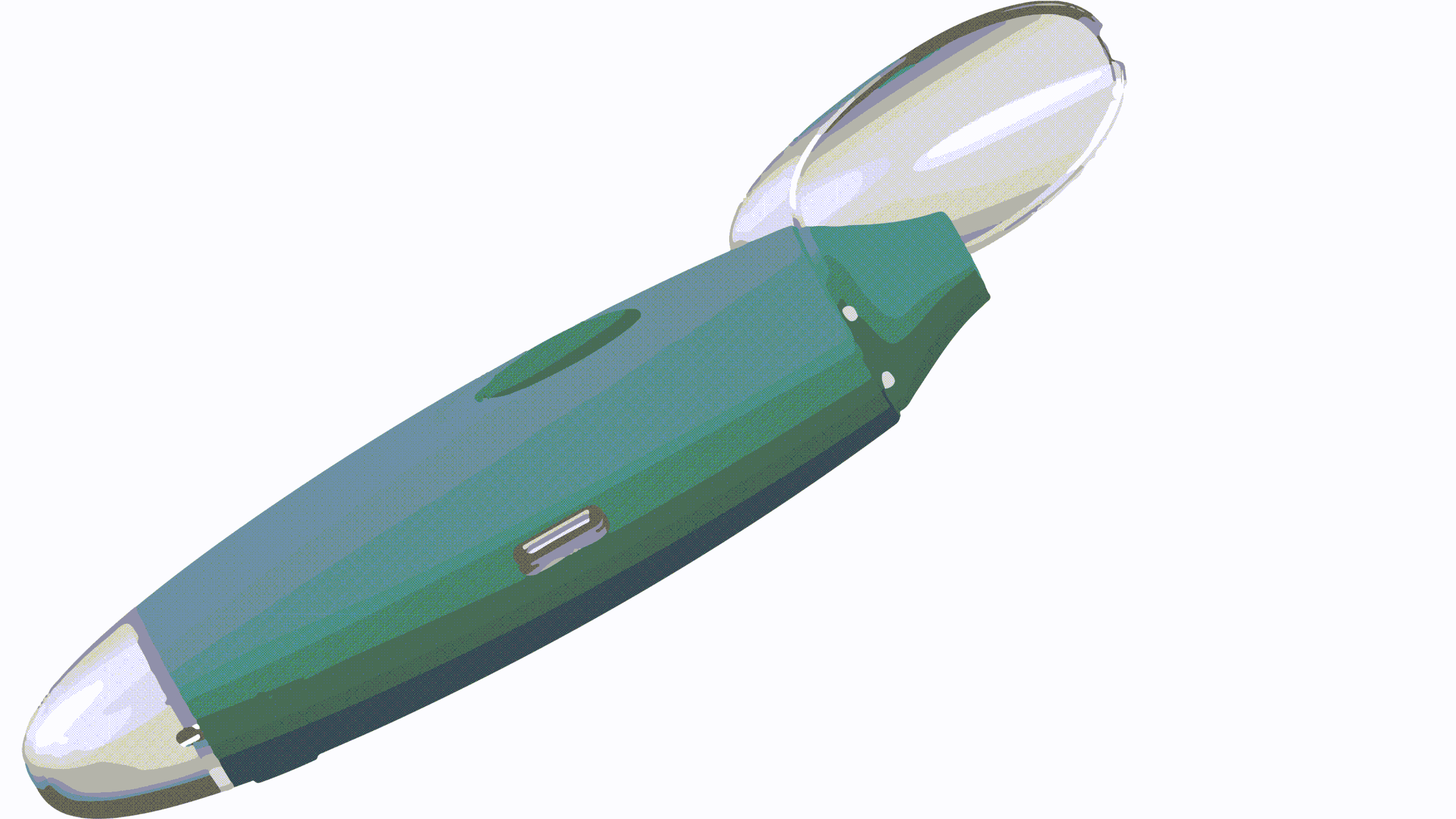Context
Young adults with Cystic Fibrosis often stop using airway clearance treatment around ages 18-24, which results in worsened lung health long term.
Approach
Design a new airway clearance system that integrates into the lifestyle of young adults with Cystic Fibrosis, creating higher compliance rates.
1819 Innovation Award Winner
Research
What is Cystic Fibrosis?
Cystic Fibrosis is a genetic disease that causes the body to produce thick, sticky mucus that can clog organs and airways. This can cause issues that affects the lungs, pancreas, and other organs.
Who does it affect?
There are close to 40,000 children and adults living with cystic fibrosis in the United States. This population continues to grow as medical solutions advance. More than 75 percent of people with CF are diagnosed by age 2. The number of people with CF is growing due to evolving medication.
Current Airway Clearance Technology
The Nebulizer
Delivers medication into the lungs as a fine mist that helps thin mucus, fight infections, and open airways
Technology Landscape
User Journey Map
High Burden
Low Burden
The Vest
The vest is used to help loosen mucus in the lungs by delivering rapid vibrations to the chest. This helps move mucus into the larger airways, where it can be more easily coughed out.
Select Application
Universal Application
Pain Points
This is one example of a typical airway clearance routine. However, routines can vary depending on the variant of Cystic Fibrosis the individual has, so treatment can take longer.
Least favorite part was sitting with the vest on
Couldn’t do homework at the same time because of shaking from the vest
Stuck to the machine, so he’s forced to stop what he’s doing to do treatment which is difficult for him and parents
Difficult to convince him to do the clearance some days
Online Questionnaire
How does Cystic Fibrosis affect your daily routine?
How Often do you Perform Airway Clearance Techniques?
User Interviews
Franki
Cystic Fibrosis Foundation
Senior Development Director
Highly involved in Ohio CF community
Niece has CF and has issues with keeping vest strapped on
Dave & Mara
CF Patient and Wife
Used to have siblings hit back (airway clearance)
Doesn’t need to use ACT anymore because of modulator drugs
When vest came out, didn’t have issues since it was better than physical impact
Stephanie
Caretaker - 10 y/o Son
Hates being tied down to machine
Difficult to travel with
Portable vest is not as effective
Needs to time out meals with treatment
Wants something more subtle
Kathy
Caretaker - 16 y/o Daughter
Monarch vest is heavy
Used to do cupping before vest
Doesn’t think Afflovest helps much
Air vest is most comfortable
Difficult to travel with vest
Emphasis on exercise
Key Insights
CF greatly affects the daily routine of patients:
Movement & Exercise
Exercise can be challenging for people with cystic fibrosis due to shortness of breath and fatigue.
Daily Treatments
Daily treatments take an average of 6 hours, making it hard for patients to maintain treatment routines or plan freely.
Time Management
Since treatment is done at home, everything takes longer and requires strong time management.
Design Goals
Technology
Nanoparticles
What are Nanoparticles?
Nanoparticles are tiny particles, typically ranging from 1 to 100 nanometers in size.
How are they used?
Nanoparticles are utilized for different medical purposes including targeted drug delivery, diagnostic imaging, and even therapeutic applications like cancer treatment and tissue regeneration
Electromagnetic Waves
What are Electromagnetic Waves?
Electromagnetic waves are invisible waves of energy made up of electric and magnetic fields moving together. They can travel through air, space, and even the human body.
How are they used?
Electromagnetic waves can cause agitation, or increased movement, of molecules and charges within a material. When controlled, they can activate materials like magnetic nanoparticles without needing direct contact.
A Smarter Solution
By using magnetic nanoparticles that are inhaled into the lungs and applying electromagnetic waves, the particles vibrate within the lungs through magnetic activation. This has the potential to loosen mucus in a less physically demanding way.
Value Proposition
This device seamlessly integrates into the daily lives of young adults with CF, using magnetically responsive nanoparticles to clear mucus. This makes airway clearance more comfortable, portable, and hassle-free, leading to higher compliance rates.
Ideation
Design Directions
This system requires two parts:
Nanoparticle Nebulizer
Distributes magnetic nanoparticles into the lungs
Magnetic Wave Vest
Uses magnetic waves to vibrate magnetic particles in the lungs to agitate mucus
Ideation
Looked into organic handheld device, but could become overly complicated
Wearable nebulizer didn’t hit user needs
Moved forward with portable nebulizer concept
Clay Prototypes
Clay Prototypes were used to explore different methods of magnetic wave application and nebulizer form
Vest Ideation
Sketched around main airway clearance agitation points for optimal performance
Vest Prototype
Iteration 2 was the final design direction. It hit all the main agitation points while providing a secure fit.
Iteration 1
Iteration 2
User Validation
Interview Goals
Nebulizer
Understand which application provides the most ease of use
Understand which form best fit the user needs
Electromagnetic Wave Application
Validation Overview
This was an in-home interview with a family of four. The youngest son, age 10, has Cystic Fibrosis.
All four family members participated in the user validation, providing different perspectives with the same values
Nebulizer Validation
The focus of this validation activity was to understand which form met the needs of someone with Cystic Fibrosis. These forms were judged based on comfort, sanitization ability, and level of subtleness. They liked the size of the two smaller ones, but didn’t like the ones that strongly resembled vapes.
Final Direction
This nebulizer was the family’s favorite because of the ease of use, the cap to keep the mouthpiece clean, and the subtlety of it.
Additional Surveys
Nebulizer 3
Non-CF Users
This group fit the age range of 18-23 to provide feedback on which form was their favorite, but realized the values of people with Cystic Fibrosis are different. However, the form feedback was still valuable.
Online CF Community Ranking
Nebulizer 1
Nebulizer 2
Nebulizer 4
In addition to an in-person validation, this online survey was posted in a CF subreddit. Users were asked to rank their favorite to least favorite portable nebulizer. The purpose of this was to get a quick analysis, but these were not in-depth results.
Non-CF User Ranking
Nebulizer 1
Online CF Ranking
Nebulizer 1
Nebulizer 2
Nebulizer 2
Nebulizer 3
Nebulizer 3
Nebulizer 4
Nebulizer 4
Magnetic Wave Validation
The focus of this validation activity was to figure out which method of magnetization provides the most flexibility and ease of use for the user. The handheld and adhesive prototypes made the least sense since it would be difficult for users to reach their back to apply it.
Final Direction
The vest was the family’s favorite because of its ability to reach all the agitation spots. However, they were reluctant to choose another vest solution.
Final System Direction
Based on the feedback, these are the two concepts fit the design goals the best.
The aspects that users liked about this nebulizer are strong, and the feedback is easy to accommodate.
This magnetization application made the most sense since it provides the most ease of use.
Concept Process
Nebulizer Form Progression
This grip is comfortable and the interaction is easy to understand. The only button on the front is for dispensing. All secondary features are on the back.
The earlier prototypes were too small and cluttered, making it difficult to use. The prototypes on the right are straightforward and comfortable.
Vest Progression
This vest only covers the lungs and hits the necessary agitation points while also providing a secure and adjustable fit.

































